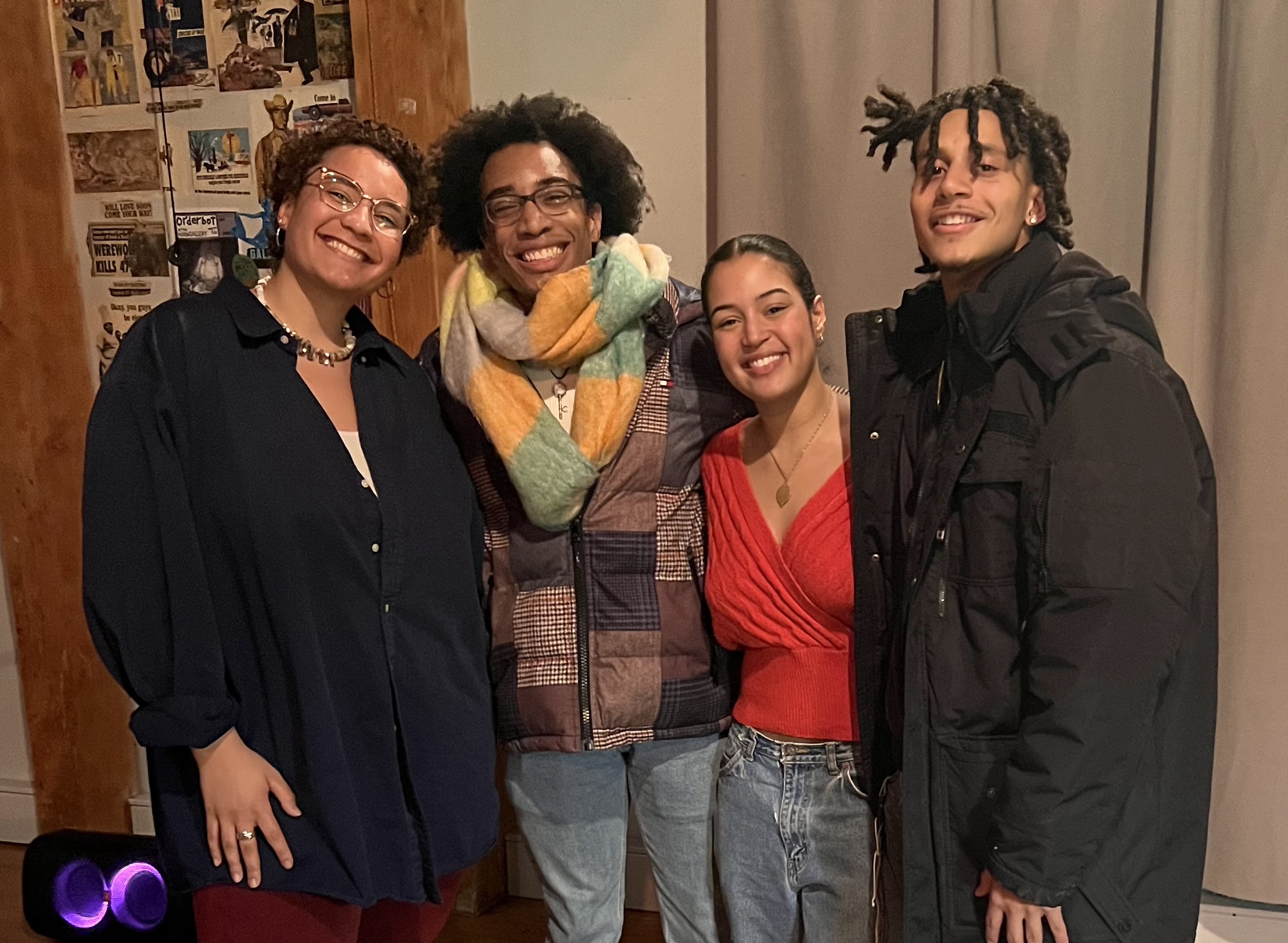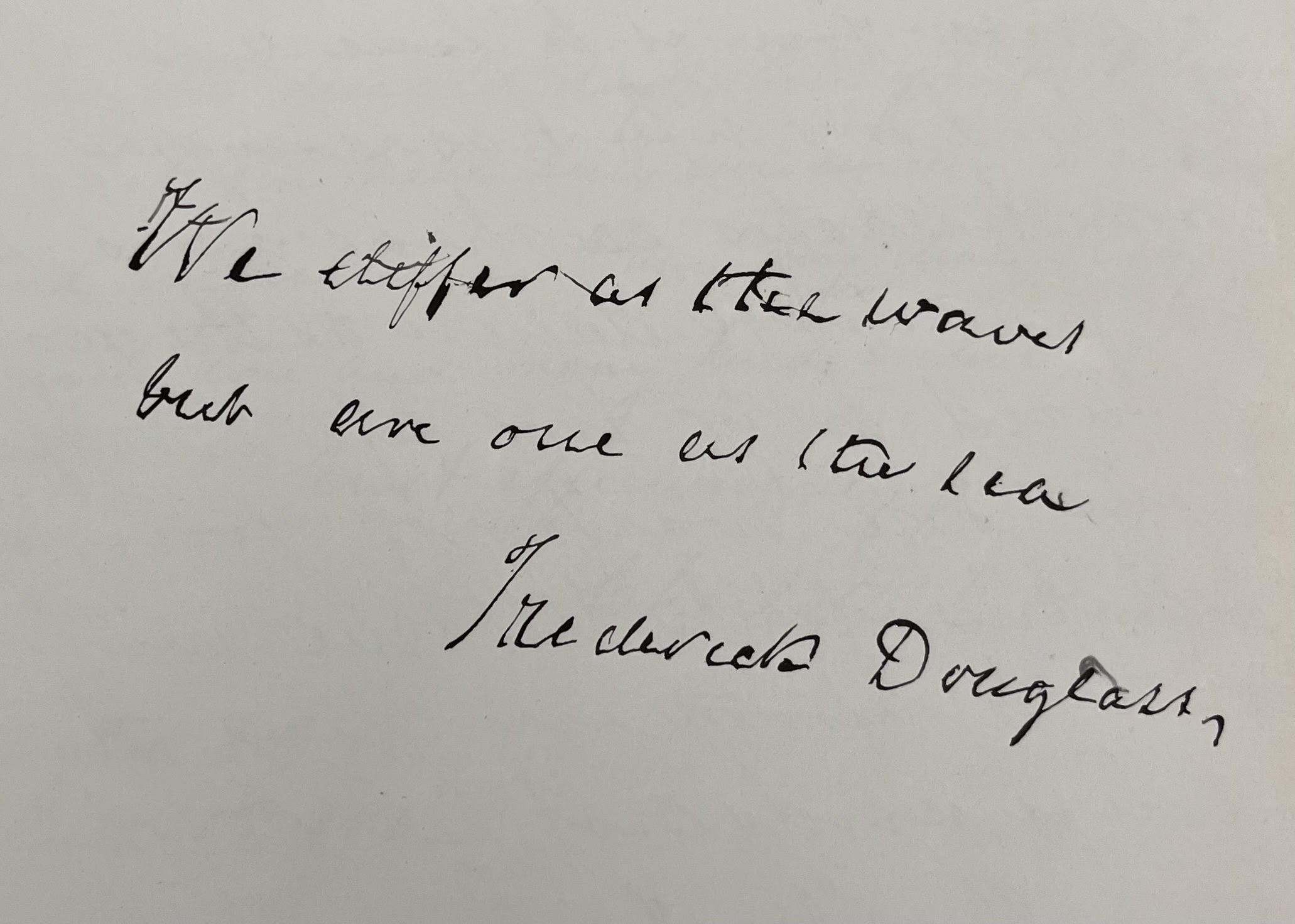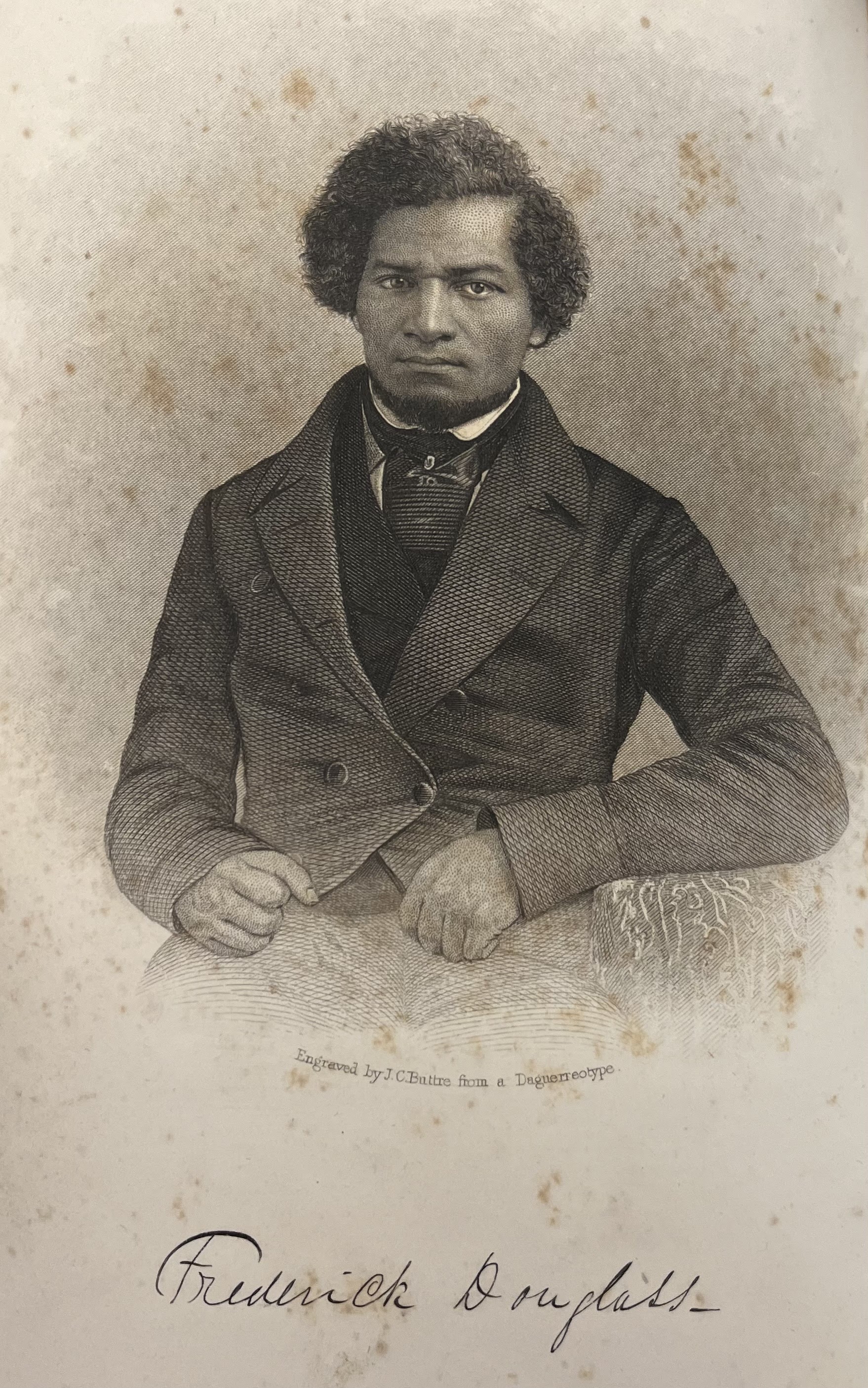February is an important time to highlight Black history and — perhaps even more significant to Black Student Union President Mwï Epalle ’24 — spotlight Black voices.
“We want to make sure that we're prioritizing the words and the feelings and the voices of Black students on campus,” she said. “I think that the larger community on campus wants to hear from their Black student population.”
That’s why Epalle was so excited to join with the Kenyon Review to sponsor the open-mic “Floetry” event held last week to kick off Black History Month on campus. It featured poetry and other creative work from Black students.

“We just wanted to showcase the immense amount of talent on the campus. Black students don't often have their own open mics,” Epalle said. “We wanted them to have their moment.”
The event was part of a large number of programs scheduled to mark Black History Month at Kenyon that involve the Office of Diversity, Equity and Inclusion; Black Student Union; African Student Association; Center for Global Engagement, and others.
These include keynote speaker Gary Tyler, an activist who served more than 40 years in prison for a crime that he maintains he didn’t commit. He will be on campus Feb. 17 at 3:30 p.m. in The Gund’s Community Foundation Theater.
Another significant Black voice on campus this month comes from the past. Members of the Kenyon community are invited to take part in a global project on Feb. 14 to transcribe the general correspondence of the abolitionist, orator and former enslaved man Frederick Douglass — all 8,371 pages of it.
The work — supported by Kenyon’s Bicentennial Special Projects Fund — will take place during an event known as Douglass Day that occurs annually on Valentine’s Day, the date the 19th-century activist chose to celebrate as his birthday since the exact date was unknown. Local participants will transcribe from online images of original documents and submit content to the National Archives by working at computers set up in Chalmers Library, Allen House and other locations on campus.
Writing Center Director Anna Scanlon brought the event to campus last year and is excited about this year’s focus.
“It’s a great example of the history part of Black History Month,” she said. “There’s so much that we need to preserve.”

The College Archives will display items from its collection for Douglass Day. These include an 1855 copy of Douglass’s second autobiography, “My Bondage and My Freedom,” as well as a 19th-century autograph book containing the following unauthenticated inscription: “We differ as the waves but are one as the sea. Frederick Douglass,” a paraphrase of remarks he made in 1887.
Engaging with these sorts of historical materials allows figures like Douglass to become more real for students, according to Eve Kausch, outreach librarian for Special Collections and Archives.

“If you can hold a book from 1855 that is still intact, the 19th century doesn't seem as far away as it does when we think about it in the abstract. I hope that students who come by to see Douglass's book and signature can reflect on who he was, what he fought for, and how our country has (or has not) changed since 1855.”
The origins of Black History Month actually are tied to Douglass. The observance was an extension of “Negro History Week,” established in February 1926 to coincide with the birthdays of Douglass and Abraham Lincoln by Carter G. Woodson, founder of the Association for the Study of Negro Life and History. The first observance of Black History Month came in 1978 under President Gerald Ford.
At Kenyon, this year’s commemorations will include a display in the library calling attention to Knox County Black history. Notable events include Douglass speaking in Mount Vernon in 1877 and poet Langston Hughes visiting Kenyon in 1947 and asking, “Why aren’t there any Negroes at Kenyon?”
Elsewhere on campus, a host of activities will take place throughout the month. The Black Student Union will celebrate 50 years of hip hop at its formal on Feb. 24 at 8 p.m., and ODEI is leading a trip with the Department of African Diaspora Studies to the Toledo Museum of Art on Feb. 25.
Alumni are getting in on the celebration, too. This includes Shaakira Raheem ’11, who will lead a somatic movement and healing session on Feb. 10, and Rowana Abbensetts-Dobson ’13, who is offering a virtual workshop on “Intro to Healing Through Writing” on Feb. 22 at 4 p.m.